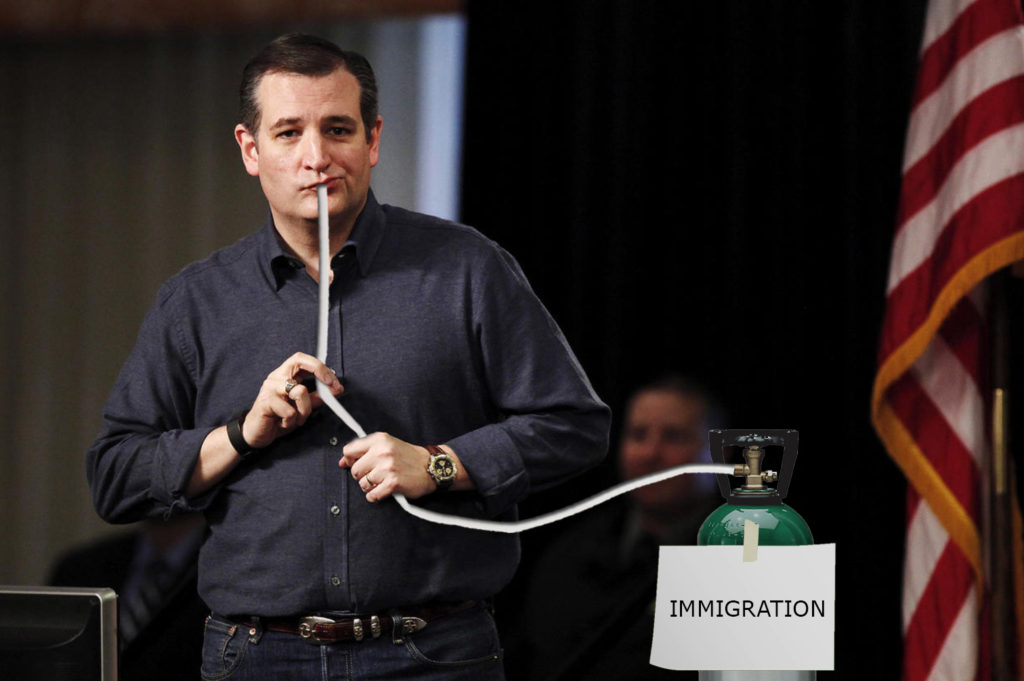
Photo by: Lawrence Lee
A recent study concluded that discussion topics and information about the 2016 election available to the general public are decreasing at an alarming rate, and if current trends continue, supplies are predicted to be completely diminished by April 2017. Researchers involved in the study are urging people to use their little- known Marco Rubio facts and Ted Cruz puns sparingly, in an attempt to slow the depletion of the dwindling resource.
Lead researchers on the team that conducted the study explained, “We initially decided to investigate the issue after noticing an irregular lull in tweets and Facebook posts about political candidates and polls. We normally don’t see any dip in posting frequencies below a few percentiles, but one particular Sunday in December, from around 3 to 5 a.m., there was a short drop.”
“After further investigation, we realized just how precious new and original political information and conversation starters were. With such high usage rates, causal political talking points are harder and harder to come across and will eventually disappear forever. Then who knows what people will discuss at the water cooler? Sports? Television? Not likely.”
Innovative and groundbreaking methodologies have already been developed by committed researchers to tackle this problem. Such methods include observing micro-scale diminishing values of conversations between a small number of individuals, and fitting the curves to larger population trends alongside careful social media monitoring and projections. The data demonstrated that after about only seven minutes of conversation in which participants were asked to come up with all of the possible ways to describe Bernie Sanders as a radical socialist, conversations appeared to dwindle and were met by reported “awkward silences.”
This finding took one researcher, Deborah Guerrera, by surprise. “We were expecting the generation of ideas and dialogue about the topic to slowly increase and then eventually stabilize at a certain level and continue indefinitely, similar to how people thought the strength of hair gel products would improve in the 60s. However, we were quickly proven wrong after one participant, six minutes and 30 seconds in, resorted to comparing Sanders’ hair to a map of Nebraska, and then silently bowed their head in shame for the remainder of the experiment.”
“This finding fundamentally changes the way we view political conversation and interest and calls for a rise to action by the public at large to prevent eventual catastrophe,” Guerra continued. “When applied at a larger scale to the whole population, these ‘awkward silences’ will eventually take the nation by storm, and people will lose the capability to communicate with each other about political ideas. Then they will slowly lose common political knowledge like the names of all seven Supreme Court Justices or who the Attorney General is.”
Although an explosion of political conversations leading up to the next presidential election could have immediate positive effects on the democratic process, it will ultimately prove to be detrimental. Researchers project that depletion of political conversations in the future could greatly damage the survival of future elections that will not seem as engaging or noteworthy. Guerrera suggests for citizens to proceed in engaging with the democratic process, but do so more cautiously.
“People have to understand that there is a limit to how much care and enthusiasm they can hold towards American politics. If they use it all up now, they will ultimately lose interest and fail to participate in the future, and the last thing we want is for potential voters to fall silent.”
Hannah Rosenblatt is an MQ alum. She was the 2017-18 Editor-in-Chief.









